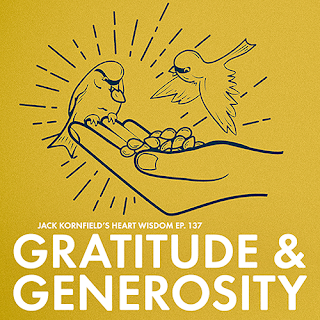If you think the Patriot Act or Donald Trump's rantings are something new, be advised of THE PALMER RAIDS which
began in the United States, less than 90 years ago. The Palmer
Raids were a series of controversial raids by the U.S. Justice and
Immigration Departments from 1919 to 1921 on suspected radical leftists
in the United States. The raids are named for Alexander Mitchell Palmer,
U.S. Attorney General under Woodrow Wilson.
The crackdown on
radical left-wing political groups had actually begun during WWI. After a
series of bomb attacks of court buildings, police stations, churches
and homes attributed to violent immigrant anarchist groups, the
Department of Justice and its small Bureau of Investigation (BOI)
(predecessor to the FBI) had begun to track their activities with the
approval of President Wilson. In 1915, Wilson warned ofhyphenated Americans who have
poured the poison of disloyalty into the very arteries of our national
life. Such creatures of passion, disloyalty and anarchy must be crushed
out.
Handicapped by
the secrecy of these groups and limited Federal law enforcement
capabilities, the Bureau of Investigation significantly increased its
workload on anarchist movements after 1917 when the Galleanists (followers
of Luigi Galleani) and other radical groups commenced a new series of
bomb attacks in several major American cities. The Russian Revolution of
1917 was also a background factor: many anarchists believed that the
worker's revolution there would quickly spread across Europe and the
United States.
On June 15, 1917,
Congress passed the Espionage Act. The law set punishments for acts of
interference in foreign policy and espionage. The act authorized stiff
fines and prison terms of up to 20 years for anyone who obstructed the
military draft or encouraged "disloyalty" against the U.S. government.
After two anarchist radicals, Emma Goldman and Alexander Berkman,
continued to advocate against conscription, Goldman's offices at Mother Earth were thoroughly searched, and volumes of files and detailed subscription lists from Mother Earth, along with Berkman's journal The Blast, were seized. As a Justice Department news release reported: A
wagon load of anarchist records and propaganda material was seized, and
included in the lot is what is believed to be a complete registry of
anarchy's friends in the United States. A splendidly kept card index was
found, which the Federal agents believe will greatly simplify their
task of identifying persons mentioned in the various record books and
papers. The subscription lists of Mother Earth and The Blast, which
contain 10,000 names, were also seized.
In 1919, J. Edgar
Hoover was put in charge of a new division of the Justice Department's
Bureau of Investigation, the General Intelligence Division. By October
1919, Hoover's division had collected 150,000 names in a rapidly
expanding index. Using this information, starting on November 7, 1919,
BOI agents, together with local police, orchestrated a series of
well-publicized raids against suspected radicals and foreigners, using
the Espionage Act of 1917 and the Sedition Act of 1918. Palmer and his
agents were accused of using torture and other controversial methods of
obtaining intelligence and collecting evidence on radicals, including
informers and wiretaps.
Victor L. Berger
was sentenced to twenty years in prison on a charge of sedition,
although the Supreme Court of the United States later overturned that
conviction. The radical anarchist Luigi Galleani and eight of his
adherents were deported in June 1919, three weeks after the June 2 wave
of bombings. Although authorities did not have enough evidence to arrest
Galleani for the bombings, they could deport him because he was a
resident alien who had overtly encouraged the violent overthrow of the
government, was a known associate of Carlo Valdonoci and had authored an
explicit how-to bomb making manual titled La Salute é in Voi (The Health is Within You), used by other Galleanists to construct some of their package bombs.
In December 1919,
Palmer's agents gathered 249 people of Russian origin, including
well-known radical leaders such as Emma Goldman and Alexander Berkman,
and placed them on a ship bound for the Soviet Union (The Buford),
called the Soviet Ark by the press). In January 1920, another
6,000 were arrested, mostly members of the industrial Workers of the
World union. During one of the raids, more than 4,000 individuals were
rounded up in a single night. All foreign aliens caught were deported,
with no requirement that there be any evidence against them, under the
provisions of the Anarchist Act. All in all, by January 1920, Palmer and
Hoover had organized the largest mass arrests in U.S. history, rounding
up at least 10,000 individuals.
Louis F. Post,
then Assistant Secretary of Labor, cancelled more than 2000 of these
warrants as being illegal. Of the many thousands arrested, 550 people
were actually deported. For most of 1919 and early 1920, much of the
public sided with Palmer, but this soon changed. Palmer announced that
an attempted Communist revolution was certain to take place in the U.S.
on May 1, 1920 (May Day). No such revolution took place, leading to
widespread derision of Palmer. Once seen as a likely presidential
candidate, he lost the nomination of the Democratic Party to dark
horse candidate James M, Cox.
On September 16,
1920, a violent blast rocked Wall Street. The Wall Street Bombing killed
38 people and wounded over 400; it was never solved but was widely
attributed to radical anarchists.
As Winston
Churchill opined: “America always does the right thing...after it’s
tried everything else.”Of course, nowadays, Tea Partiers and the Radical
rightwing reactionaries can assert their right to overthrow the
government with seeming impunity. Threats of armed insurrection and
"nullification" (one of the main issues that precipitated the Civil War)
are, it seems, commonplace in the public "discourse." Not sure if this
is progress or not.











